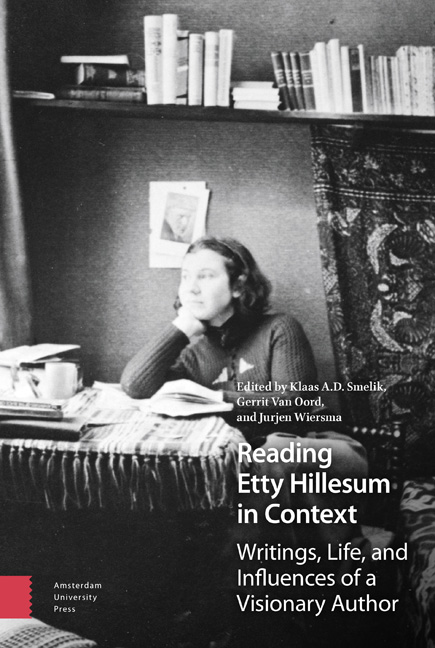18 - Etty Hillesum: Gender, the Modern and the Literature of the Holocaust
Published online by Cambridge University Press: 06 January 2021
Summary
Abstract
The diaries and letters of Etty Hillesum were written in a century that widely assumed the legacy of the European Enlightenment would manifest itself in rational and liberal policies. Amongst these policies would be the extension of education and social and intellectual emancipation of women. The author explores the way in which Etty Hillesum profited from these changes but also was the victim of Nazi policies against the Jews, and against dissent in general. Hillesum's body of work lays bare the rupture in twentieth century Europe. The author concludes that the promise of human progress with which the Enlightenment had been associated, was shown to be a very broken promise.
Keywords: gender, Enlightenment, Holocaust, knowledge, modernity, religion, Etty Hillesum
In his autobiography Experience, Martin Amis speaks of an encounter with his father, Kingsley Amis. In this, Martin told his father of a description in Primo Levi's If this is a Man of the different ways in which Jewish men and women, in a transit camp in Italy during the Second World War, spent the night before their deportation. The men sat about, smoked if they could and talked. The women washed clothes and attempted to bring some semblance of order and normality into their meagre possessions and to the possibilities of the next day.
Martin told his father this story because by this point in their lives father and son had rather different views about women and men and the gender order in general and Martin was attempting to suggest to his father that the human condition contained distinct, and gendered, ways of relating to the world. But when he looked across at his father, he saw that far from preparing to lambast or challenge his son Kingsley Amis was silently crying. “Don't let us ever,” he said, “do that again.” Amis Senior was no sentimentalist and in his later years took what people came to regard as a somewhat reactionary view of the world. But this brief encounter is perhaps appropriate as a starting point to my discussion here of Etty Hillesum's diary, in which I want to raise some questions about gender, the modern and subjectivity.
- Type
- Chapter
- Information
- Reading Etty Hillesum in ContextWritings, Life, and Influences of a Visionary Author, pp. 371 - 378Publisher: Amsterdam University PressPrint publication year: 2018



